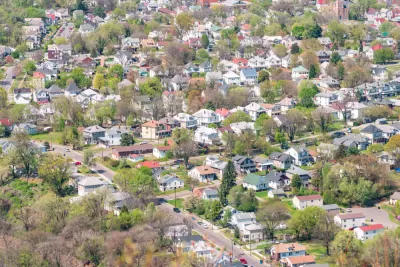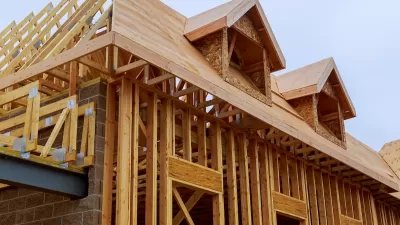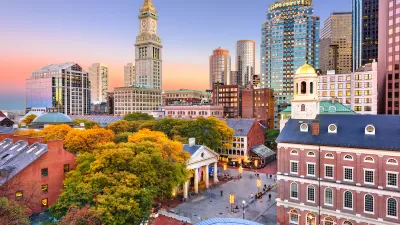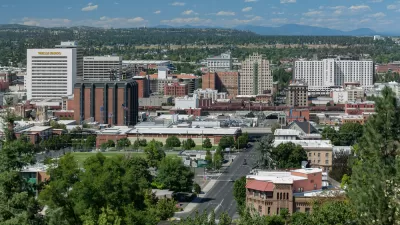As the state's real estate costs rise, community land trusts struggle to access funding and land in order to build more affordable housing.

The rapid rise in housing costs in Northern Virginia's Blacksburg "has sent local officials searching for solutions, making the town of just 15,000 permanent residents the latest Virginia locality to experiment with a community land trust," according to Wyatt Gordon of Greater Greater Washington. Kim Thurlow, who works with the Town of Blacksburg on housing initiatives, says demand is high while supply is limited. "We are a small college town experiencing really rapid growth due to the university, the former alumni that see our area as a potential investment and of course the innovative businesses that are being spun off from the university. If you’re a first time home buyer, you’re getting squeezed out of town."
But a recent initiative that created a community land trust has stalled due to a lack of fundraising capacity. While "[t]here are a number of potential funding sources for the housing development side," Thurlow says, "none of them are set up to pay for the operational costs needed to have a staff that would offer support to the homeowner long-term."
CLTs maintain affordability by never selling the land underneath the housing and splitting the earned equity with the homeowner when they sell the structure. Although the model developed in rural Georgia as a way for Black farmers to protect their land from the forced sales and seizures which have long hindered people of color from accruing wealth in this country, CLTs have only recently made their way to Virginia via the movement for affordable housing.
Acknowledging the uneven pace of growth between home prices and wages, "[t]he community land trust model creates homes that are not allowed to increase in cost at the same pace as the market," says Julia McNally, program director for the Virginia Statewide CLT, the state's third such entity and the only one not focused on one specific community.
While acquiring land is expensive and difficult for CLTs, cities can help by donating or selling low-cost parcels of land to the land trusts. According to Erica Sims, CEO of the Maggie Walker CLT, "[m]unicipal contributions of land are so important because that takes one of our biggest costs of providing more affordable housing out of the equation."
To improve their prospects, Virginia CLTs are now pushing for a real estate tax exemption that would further reduce costs for CLTs and allow them to build more affordable housing at a lower cost.
FULL STORY: Can community land trusts help solve Virginia’s housing crisis?

Planetizen Federal Action Tracker
A weekly monitor of how Trump’s orders and actions are impacting planners and planning in America.

The Simple Legislative Tool Transforming Vacant Downtowns
In California, Michigan and Georgia, an easy win is bringing dollars — and delight — back to city centers.

San Francisco's School District Spent $105M To Build Affordable Housing for Teachers — And That's Just the Beginning
SFUSD joins a growing list of school districts using their land holdings to address housing affordability challenges faced by their own employees.

In More Metros Than You’d Think, Suburbs are Now More Expensive Than the City
If you're moving to the burbs to save on square footage, data shows you should think again.

The States Losing Rural Delivery Rooms at an Alarming Pace
In some states, as few as 9% of rural hospitals still deliver babies. As a result, rising pre-term births, no adequate pre-term care and "harrowing" close calls are a growing reality.

The Small South Asian Republic Going all in on EVs
Thanks to one simple policy change less than five years ago, 65% of new cars in this Himalayan country are now electric.
Urban Design for Planners 1: Software Tools
This six-course series explores essential urban design concepts using open source software and equips planners with the tools they need to participate fully in the urban design process.
Planning for Universal Design
Learn the tools for implementing Universal Design in planning regulations.
Smith Gee Studio
City of Charlotte
City of Camden Redevelopment Agency
City of Astoria
Transportation Research & Education Center (TREC) at Portland State University
US High Speed Rail Association
City of Camden Redevelopment Agency
Municipality of Princeton (NJ)





























